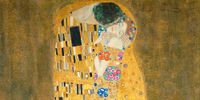Forthcoming Issue 2 (December 2025)
Facets of the Health Humanities
(Leonardo Da Vinci, Anatomie, 1510)
“There must be a way, I thought, that the language of life as experienced—of passion, of hunger, of love—bore some relationship, however convoluted, to the language of neurons, digestive tracts, and heartbeats.” (Kalanithi, 2016, p. 39) Thus does American physician Paul Kalanithi in When Breath Becomes Air hypothesise a powerful correspondence of the biological language of the human body, the very functioning and orchestration of its vital processes, and his attempt to find a narrative voice to linguistically and artistically record and recount one’s subjective experience of life with its repertoire of feelings, needs and challenges. His work, completed by his wife Lucy after his death, moves between three main phases of the author’s path through his terminal illness and poetically traces a journey of endurance, hope and legacy — a true phenomenology of his experience of writing his way through terminal illness. Whilst Kalanithi’s literary exploration shows the strength of auto-pathography written in prose, in a parallel manner another author, the English poet Myra Schneider, shows the efficacy of using an autopathography written in verse. Using her poetic voice to support herself emotionally, mentally and physically through therapeutic writing during the treatment of cancer, Schneider deposits in her autobiographical Writing My Way Through Cancer (2003) a collection of diary entries and verses, which was accompanied the following year by the publication of Multiplying the Moon (2004), a volume collecting the poems that were born out of the diary. Finally an example from Film Studies, Sur l’Adamant (2023), is a documentary where film director Nicolas Philibert observes through his camera how powerfully art therapy, community cooking and conversation sharing groups may change the life of vulnerable people who attend the barge on the Seine, purposely built in 2010 to host sessions and activities to support and validate the most fragile suffering from mental illness or trauma.
Il Pietrisco Prose launched a project which ran between March 2021 and April 2022 on the Facets of the Health Humanities, in collaboration with many expert researchers in various countries and universities. On researching the rich and variegated transdisciplinary field of the Health Humanities, which has emerged in the last twenty years, our project has explored a plethora of works and intersecting genres that pertain to the relationship between Corporeality, the Humanities, Sociology of Health and Illness, and Philosophy of Healthcare. Other unsuspected areas of interest and study have come to the fore next to poetry, prose and cinema: comics and graphic novels, theatre and performing arts, new models of medical architecture, disability and children’s literature, visual culture, palliative care and end of life care. And potentially there is a lot more to explore in connection with culture and identity areas such as class, gender, sexuality, migration, health care structures. All recordings of the seminars and lectures are available on the Il Pietrisco platform at the following link (scrolling down to works completed in 2022): http://pietrisco.net/Recordings-of-Events/.
In order to continue with the next phase of this project, the team has now decided to launch a call for academic articles to corroborate and create a strong basis to uphold the tenets of further research in the area of the Health Humanities in Anglophone, Francophone and Italian artistic expression (e.g. poetry, prose, cinema, theatre, visual arts, the performing arts) writing on the human condition and its intersection with illness, healing and healthcare. In this way the transdisciplinary field of the Health Humanities can reveal all its facets which still need to be researched in greater depth reaching wider echoes on what it means for a person to meet with the medical world, following also current methods and theories including gender and identity, adding also potentially a transnational dimension. This call will run parallel to a Call for Texts due to come out in late summer 2024, where we will welcome the submission of artistic work spanning various artistic, cinematic and literary genres.
The Second Issue of Il Pietrisco Journal, Facets of the Health Humanities, invite scholars (both established, early career and doctoral students) to submit proposals for academic articles in any of the following Anglophone, Francophone and Italian genres (children’s literature, film — both fiction film and documentary—, graphic novel, poetry and prose in the Twenty-First century, in response to these research questions:
- corporeality and the encounter with the medical institution;
- the intersection between disability and the effects of identity;
- the perspective of doctors or patients on their own illness (also terminal);
- the formation of the new empathetic medical generation and new forms of medicine (also digital);
- the development of new hospital or hospice spaces to accommodate children, non binary persons, migrants
and the elderly in the 21st century;
- the representation of disability and inequality in theatre and the performing arts.
Proposals in the form of an abstract must be sent to journal@pietrisco.net by 10th January 2025 and must be no longer than 300 words and a short biographical note. Full articles must be received by 15th July 2025.
Articles will go, as normal, through a double-blind peer review and acceptance for publication will be received by 30th September 2025. The Issue will be published on 30th December 2025.
Contributions may be written in either English, French or Italian.
Issue 1 (January 2023)
Poetry as the ‘Verb Incarnate’, Illness and the Phenomenological Body.
(Gustav Klimt, The Kiss, 1908)
“In the beginning was the Word, and the Word was with God, and the Word was God” (1:1) opens John’s Gospel of the King James’s translation of the Bible. It is the very first verse whose three sentences introduce the principle of creation through the ‘Word’ and then progressively associates it and identifies it with God. Over the imperfect translation of the original ancient Greek λόγος (logos), we shall prefer the Latin verbum, which renders more aptly the full totalising meaning of the original λόγος, which comprehends both the linguistic nature of ‘word’, a sound with a semantic meaning produced by a thinking/speaking subject, but also the idea (ἰδέα) which is included in the vision and design of such subject, i.e. God’s idea, design and act of creation. ‘Verb’, with its extra function of giving agency to the subject (the Italian, Portuguese and Spanish verbo, and French verbe), will be our favoured version of the original λόγος.
‘And the Word was made flesh, and dwelt among us’ continues John (1:14). Here the evangelist reveals to the reader more of God’s original idea and design, the incarnation of the Verb, which descends into the space and time, the historical dimension we inhabit as human beings to act our salvation. It is the revelation of the Incarnate Verb (the Christ) that is able to save humanity exactly because it assumes our own nature in order to experience it and to fall in love with us and our imperfection – therefore ‘living among us’ is the necessary condition to experience the essence of His created marvels. The Incarnate Verb is already at the origin of the idea, design and eschatological destiny of humanity: God as idea, architect and agent of creation and salvation. ‘In the beginning was the Verb’ [my change] identifies the Verb as God and God as the absolute entity that breathes life into all things by naming them. The Verb names (and creates) with auctoritas in its numinous meaning of ‘sacred’ and ‘awe-inspiring’, in a pure language of total communication that we cannot even imagine or comprehend and that, here, we associate, very imperfectly, to the poetic word: the ‘verb’ that names, creates and saves.
The Roman poet Valerio Magrelli, author of Nel condominio di carne (2003), attributes the role of the guide in his poetic writing to the very daily coexistence with illness from the young age of 17 – not serious debilitating illness, but incidents that accompanied him along his life and his writing often enough to become intrusive life companions whom he recognises to be at the foundation of his poetic inspiration. Magrelli’s search into the body as a condominio di carne (e di lingua) looks at illness as a pre-existing condition within the human phenomenological body, with the consumption of the body seen as the very reason of its existence: a body which is consigned to a physical force of disaggregation that allows it to continue to exist. A body which, in its disaggregating nature, is colonised by illness as well as by language: illness allows it to live on whilst consuming it, whilst language becomes the authoritarian discipline, alongside medicine, that tries in vain to cure its natural condition. Within the paradoxical biological system that Magrelli examines, a body suspended between physical consumption and living force, both language and medicine become the cures that, in a sort of bio-political colonising fashion, try to control the human body and consequently the people (and peoples) that own those bodies.
In our research into the phenomenological body in its (natural) condition of illness, we shall research the poetic word as its antidote. Poetry, therefore, will be our means of researching the power of the verb for a very approximative, human, nonetheless powerful salvation. We shall not approach the ‘Verb’ in its numinous dimension in this context, but in its therapeutic value in the context of illness as the pharmakos (φαρμακός) that can transform stigmatised, marginalised and passive human beings by giving them agency and dignity. The poetic word will be re-thought as a quasi-numinous poetic ‘incarnate verb’ that can function from its textual (both oral and written) dimension as art and as therapy for the healing of the ill body explored from the perspective of phenomenology.
The First Issue of Il Pietrisco Journal, seeks to attract articles on the subject of Poetry as the ‘Verb Incarnate’, Illness and the Phenomenological Body in Anglophone, Francophone and Italian literatures spanning the nineteenth, twentieth and twenty-first centuries.
We would like to invite scholars (both established, early career and doctoral students) to send contributions on the following research themes:
- the poetics of the ill body;
- sacred and profane poetry and the ill body;
- diaries and memoirs in verse written from the perspective of illness (also terminal);
- poetry therapy in the context of the clinic/hospital institution;
- narrative medicine in poetry form.
Proposals, in the form of an abstract must be sent to journal@pietrisco.net or to either of the co-editors of the Issue: Dr Rossella M. Riccobono (rossella.riccobono@pietrisco.net) or Dr Cinzia Gallo (cinzia.gallo@unict.it) by 28th February, 2021 and must be no longer than 300 words and a short biographical note. Full articles must be received by 15th July 2021. Articles will go, as normal, through a double-blind peer review. Acceptance for publication will be communicated by 30th September 2021. Publication will be guaranteed by 31st December 2021.
Contributions may be in Italian, English or French.





